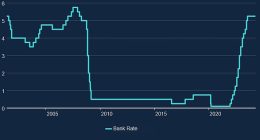
June 4, 2021 5 min read
Opinions expressed by Entrepreneur contributors are their own.
Executives are problem solvers, but details count when solving the short- and long-term problems their businesses face. A miscalculation or slight deviation in navigation could throw a ship hundreds of miles off course within just a few days. However, if executives know in advance what small adjustments to make or what details to focus on, many of their problems could be avoided in the long run.
Lots of failed businesses have one thing in common: They settled for the idea that circumstances were out of their control. In fact, many of us have shared that feeling during the last year and a half. A pandemic, a series of lockdowns, political turmoil — we’ve faced so many circumstances that were out of our hands. But it’s how executives address that problem that can make or break their success in the coming months and years. Here’s how a few companies fared when faced with unprecedented circumstances.
Related: 5 Ways to Be a Strong Leader
1. Boeing
Despite employing some of the world’s highest-paid engineers, Boeing made a miscalculation on the 737 MAX flight-control smoothing system, which cost 346 people their lives. Instead of taking the blame and addressing the issue, Boeing was quick to invalidate the training of the pilots — but it eventually came out that a malfunction of the plane itself led to the tragedy. Since then, the company has ultimately lost tens of billions of dollars, culminating in the largest first-quarter loss in 20 years. It gave Boeing’s competitors a huge advantage.
2. Fry’s electronics
After 36 years of being the best one-stop shop for tech enthusiasts, Fry’s told the public via its website that it was shuttering its doors because of “changes in the retail industry and the challenges posed by the Covid-19 pandemic.” Using a similar business model, Best Buy continues to outperform industry earnings estimates. And that makes sense — the demand for electronics is way up. So, one major retailer has unprecedented sales while the other shuts its doors. Why?
Related: 10 Biggest Challenges Small Business Owners Face Right Now
Best Buy showed dexterity when it started competing with Amazon eight years ago — specifically by making its price-match-guarantee policy permanent. The company paved its own way out of Amazon’s shadow to be a true competitor with faster gratification. Best Buy then used that quick-pivoting ability to adapt to an even more challenging environment during lockdown, making its stores pickup centers for the online portal. Meanwhile, Fry’s did not adapt and did not survive.
If Boeing and Fry’s had simply reacted more quickly, would things have gone a lot differently for them? Of course. Pivoting may be a buzzword to some, but it’s also a very real and vital ability. Making quick decisions during tough times can be the difference between a company that survives and one that doesn’t.
3. Wise Acre
Wise Acre Frozen Treats was founded in 2006 by Jim Picariello, whose grand idea had humble beginnings — making organic popsicles in a schoolhouse kitchen. Within just two years, Jim’s popsicles were winning awards, and sales were skyrocketing as consumers sought healthier natural and organic snack alternatives for their families.
By 2008, though, the company was bankrupt. Why? It had grown too fast without securing the capital to properly invest in equipment or infrastructure. Picariello wasn’t responsive enough to the company’s changing circumstances, to the increasingly detrimental impact of its overly ambitious acceleration, so his dream came to an end.
Persevering and adapting when things get tough
If these companies had sufficient capital, would they still be here? What about Century 21, Brooks Brothers, Chuck E Cheese, GNC, Hertz, Gold’s Gym, JCPenney, J. Crew, Pier 1 — all brands experiencing bankruptcy?
Related: The Pandemic Created the Next Generation of Great Entrepreneurs
If the pandemic has been a symbol of our general inability to make things work in our favor, then why did 80 percent of companies in the S&P 500 report earnings that exceeded analysts’ expectations in both the third and fourth quarters of 2020?
Entrepreneurs, learning to leverage your circumstances and opportunities is one of the most important skills for surviving in business. The biggest problem most companies face is a tendency to believe that they can’t leverage any set of circumstances to their advantage. It’s time to change that mindset.
As a business owner, you will face adversity, but nothing is out of your control. Look at every single obstacle, problem or outright catastrophe as simply an opportunity to lead and shine. Almost any ship captain can navigate when the weather is clear and the port is within sight. Toss the waves a bit and decrease the visibility, and you’ll spot the differences in a heartbeat. Some focus under pressure, and some fold.
This article is from Entrepreneur.com








